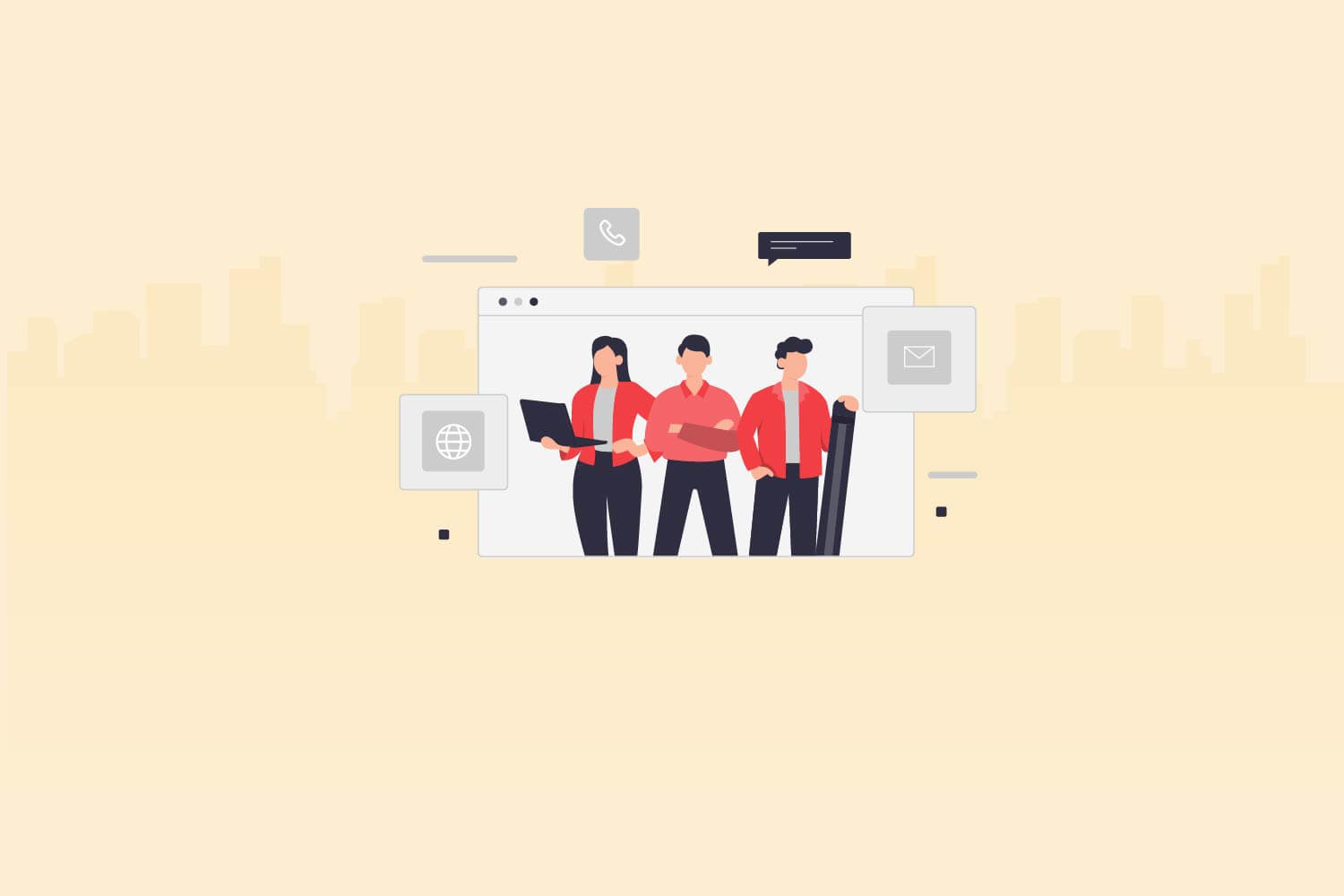In today’s technology-driven world, the role of an IT Support Analyst holds significant importance in ensuring the smooth operation of organizations across various industries. As the recruiting landscape for IT Support Analysts continues to evolve, it is crucial for HR professionals and CXOs to understand the prevailing trends and dynamics.
With advancements in data analytics and the ever-increasing reliance on technology infrastructure, the demand for skilled IT Support Analysts has witnessed a remarkable surge. In this era of digital transformation, businesses are seeking professionals who can efficiently address technical issues, provide user support, and optimize IT systems. In this article, we will explore the latest trends in IT Support Analyst recruitment and shed light on the evolving landscape of this critical role.
Here are the top 60 IT Support Analyst interview questions to ask job applicants:
15 general interview questions for the IT Support Analyst
- Can you describe your experience in providing technical support to end-users?
- How do you prioritize and handle multiple support requests simultaneously?
- Can you explain the steps you take to troubleshoot and resolve hardware and software issues?
- How do you ensure effective communication with non-technical users while providing technical support?
- What methodologies or frameworks do you follow to document and track support tickets?
- Can you share an example of a complex technical issue you successfully resolved?
- How do you stay updated with the latest technology trends and advancements in the IT support field?
- Can you describe your approach to handling challenging or irate users?
- How do you ensure data security and confidentiality while providing support?
- Have you worked with any remote support tools or ticketing systems?
- Can you explain your experience with network troubleshooting and configuration?
- How do you handle incidents or outages that impact a large number of users?
- Can you describe your experience with software deployment and upgrades?
- How do you approach training and assisting users with new software or applications?
- Can you share an example of a situation where you had to collaborate with other teams or departments to resolve a technical issue?
5 sample answers to general interview questions for the IT Support Analyst
- Can you describe your experience in providing technical support to end-users?
Look for: The candidate should demonstrate their experience in providing technical support, their ability to communicate technical concepts to non-technical users, and their customer service skills.
Example answer: “In my previous role as an IT Support Analyst, I provided technical support to a diverse user base ranging from entry-level employees to senior executives. I actively listened to their concerns, asked clarifying questions to understand the issues, and explained technical solutions in a clear and non-technical manner. By combining my technical knowledge with strong customer service skills, I consistently received positive feedback and maintained high user satisfaction levels.”
- How do you prioritize and handle multiple support requests simultaneously?
Look for: The candidate should demonstrate their organizational and multitasking skills, their ability to prioritize tasks based on urgency and impact, and their strategies for managing a high volume of support requests.
Example answer: “To effectively handle multiple support requests, I prioritize tasks based on urgency and impact on business operations. I use a ticketing system to track and categorize requests, ensuring no issues slip through the cracks. I evaluate the criticality of each issue, providing immediate support for emergencies while addressing non-urgent requests in a timely manner. By effectively managing my time and utilizing task prioritization techniques, I have consistently met or exceeded service level agreements.”
- Can you explain the steps you take to troubleshoot and resolve hardware and software issues?
Look for: The candidate should demonstrate their technical troubleshooting skills, their knowledge of common hardware and software issues, and their ability to follow a structured approach to problem-solving.
Example answer: “When troubleshooting hardware and software issues, I follow a systematic approach. I gather information from the user about the problem, perform initial diagnostics, and utilize appropriate tools to identify the root cause. I analyze error logs, review system configurations, and consult relevant documentation or knowledge bases. Once the cause is determined, I devise a solution and implement it while ensuring minimal disruption to the user. Finally, I verify the resolution and provide clear instructions or documentation to prevent similar issues in the future.”
- How do you ensure effective communication with non-technical users while providing technical support?
Look for: The candidate should demonstrate their ability to communicate complex technical concepts in a clear and concise manner, their patience and empathy in assisting non-technical users, and their strategies for fostering effective communication.
Example answer: “When assisting non-technical users, I adapt my communication style to ensure clarity and understanding. I actively listen to their concerns, ask questions to gauge their level of technical knowledge, and then explain solutions using non-technical language. I avoid jargon or acronyms and provide visual aids or step-by-step instructions when necessary. Additionally, I maintain a patient and empathetic demeanor, reassuring users and building trust. By fostering effective communication, I empower users to feel confident and comfortable when interacting with technology.”
- How do you handle incidents or outages that impact a large number of users?
Look for: The candidate should demonstrate their experience in handling major incidents or outages, their ability to stay calm under pressure, their knowledge of incident management processes, and their communication skills in coordinating with stakeholders.
Example answer: “During incidents or outages affecting a large number of users, I adhere to incident management best practices. I remain calm and focused, quickly assessing the impact and severity of the issue. I promptly initiate communication with stakeholders, providing regular updates on the situation and estimated resolution time. I coordinate with cross-functional teams, such as network administrators or system engineers, to expedite the restoration process. Additionally, I conduct post-incident reviews to identify areas for improvement and implement preventive measures to minimize future disruptions.”
15 behavioral interview questions for a IT Support Analyst
- Tell me about a time when you had to handle a difficult or demanding user. How did you approach the situation, and what was the outcome?
- Can you describe a time when you had to quickly learn and adapt to a new technology or software to provide support? How did you approach it, and what were the results?
- Give me an example of a situation where you successfully resolved a complex technical issue by collaborating with other team members or departments.
- Describe a time when you had to prioritize multiple support requests with competing deadlines. How did you manage your time and ensure all issues were resolved effectively?
- Tell me about a time when you identified a recurring technical problem and implemented a solution to prevent it from happening again.
- Can you share an example of a time when you had to provide support to a user with limited technical knowledge? How did you communicate and assist them in resolving their issue?
- Describe a situation where you had to handle an urgent IT incident or outage. How did you respond, and what steps did you take to resolve the issue and minimize impact?
- Tell me about a time when you went above and beyond to provide exceptional customer service to an end-user. What did you do, and how did it impact their experience?
- Give me an example of a project or initiative where you played a significant role in implementing new IT systems or technologies to improve support efficiency.
- Describe a time when you had to deal with a high-stress situation while providing IT support. How did you manage your emotions and handle the pressure effectively?
- Tell me about a time when you had to deliver training or conduct workshops to educate users about new software or technology. How did you ensure their understanding and adoption?
- Can you share an example of a time when you proactively identified and resolved a potential security threat or vulnerability in an IT system?
- Describe a situation where you had to handle a support request outside of your area of expertise. How did you approach it, and what actions did you take to assist the user?
- Tell me about a time when you had to communicate technical information or updates to stakeholders or non-technical team members. How did you ensure clarity and understanding?
- Give me an example of a time when you took the initiative to streamline or optimize IT support processes or workflows. What changes did you implement, and what were the outcomes?
5 sample answers to behavioral interview questions for the IT Support Analyst
- Tell me about a time when you had to handle a difficult or demanding user. How did you approach the situation, and what was the outcome?
Look for: The candidate should demonstrate their ability to handle difficult users with patience and professionalism, their conflict resolution skills, and their commitment to providing effective solutions.
Example answer: “In a previous role, I encountered a user who was frustrated and demanding due to a persistent software issue. I remained calm and empathetic, actively listening to their concerns. I assured them that I understood their frustration and committed to resolving the issue promptly. By thoroughly investigating the problem, providing regular updates, and offering alternative solutions, I was able to alleviate the user’s concerns and restore their confidence in the IT support team. The user expressed gratitude for my patience and dedication, and their feedback contributed to improving our support processes.”
- Can you describe a time when you had to quickly learn and adapt to a new technology or software to provide support? How did you approach it, and what were the results?
Look for: The candidate should demonstrate their ability to learn and adapt quickly, theirproblem-solving skills, and their initiative in acquiring new technical knowledge.
Example answer: “In a recent project, I was assigned to support a new software application that our organization adopted. While it was unfamiliar to me at first, I took the initiative to research and familiarize myself with the software’s features, documentation, and user guides. I also reached out to the vendor’s support team for additional information and attended training sessions. By proactively gaining knowledge and hands-on experience, I was able to provide effective support to users, address their inquiries and issues, and contribute to a smooth transition for the organization.”
- Give me an example of a situation where you successfully resolved a complex technical issue by collaborating with other team members or departments.
Look for: The candidate should demonstrate their teamwork and collaboration skills, their ability to leverage resources and expertise, and their problem-solving approach in a collaborative setting.
Example answer: “In a challenging situation, we faced a complex network connectivity issue that impacted multiple departments. Recognizing the need for collaboration, I reached out to the network infrastructure team and engaged in a joint troubleshooting effort. We coordinated our efforts, shared information, and conducted thorough diagnostics. Through our collaborative approach, we discovered a configuration error that was causing the issue. By working together, we quickly resolved the problem, restored connectivity, and minimized the disruption to the affected departments. This experience reinforced the importance of teamwork and cross-functional collaboration in providing efficient IT support.”
- Describe a time when you had to prioritize multiple support requests with competing deadlines. How did you manage your time and ensure all issues were resolved effectively?
Look for: The candidate should demonstrate their organizational and time management skills, their ability to prioritize tasks, and their commitment to meeting deadlines and providing quality support.
Example answer: “In a fast-paced environment, I regularly encountered situations where I had to juggle multiple support requests with competing deadlines. To manage my time effectively, I assessed the urgency and impact of each request. I communicated transparently with the users, setting clear expectations on response times. I prioritized critical issues that had a significant impact on business operations, while also considering the level of effort required for each task. By maintaining open lines of communication, managing user expectations, and efficiently resolving issues, I was able to meet deadlines, ensure user satisfaction, and provide quality support across the board.”
- Tell me about a time when you proactively identified and resolved a potential security threat or vulnerability in an IT system.
Look for: The candidate should demonstrate their knowledge of security protocols and best practices, their attention to detail, and their proactive approach to ensuring the security of IT systems.
Example answer: “During a routine system review, I discovered a potential security vulnerability in our network infrastructure. Upon identifying the issue, I immediately reported it to the security team and initiated a thorough investigation. Working closely with the team, we analyzed the vulnerability, conducted risk assessments, and devised a solution to address the issue. We implemented enhanced security measures, such as applying necessary patches and updating access controls. By proactively identifying and resolving the security threat, we minimized the risk of a potential breach, safeguarded sensitive data, and strengthened our overall security posture.”
15 personality interview questions for the IT Support Analyst
- How do you handle high-pressure situations or tight deadlines in your work?
- Can you describe a time when you had to deal with an unexpected change or disruption in your work? How did you adapt to it?
- How would you describe your approach to problem-solving? Do you prefer to work independently or collaboratively?
- Tell me about a time when you had to deal with a difficult or challenging coworker or team member. How did you handle the situation?
- Describe a situation where you had to provide support or assistance to a coworker who was struggling with a technical issue. How did you approach it?
- What motivates you to provide excellent customer service and support?
- How do you stay updated with the latest technology trends and advancements in the IT field?
- Can you tell me about a time when you had to work on multiple projects simultaneously? How did you prioritize and manage your time effectively?
- How do you handle feedback and constructive criticism from others?
- Can you describe a situation where you took the initiative to improve a process or implement a new solution in your work?
- How do you handle repetitive or mundane tasks in your role? Do you have any strategies for maintaining focus and motivation?
- Tell me about a time when you had to explain a complex technical concept to a non-technical audience. How did you ensure their understanding?
- Can you describe a time when you had to troubleshoot a particularly challenging technical issue? How did you approach it?
- How do you prioritize ongoing learning and professional development in the IT field?
- Describe a situation where you had to balance competing demands from multiple stakeholders or departments. How did you manage the situation?
5 sample answers to personality interview questions for IT Support Analyst
- How do you handle high-pressure situations or tight deadlines in your work?
Look for: The candidate should demonstrate their ability to stay calm under pressure, manage stress effectively, and maintain a focus on delivering quality work even in challenging circumstances.
Example answer: “When faced with high-pressure situations or tight deadlines, I rely on a systematic approach to manage the workload. I break down the tasks into smaller, manageable steps and prioritize them based on urgency and impact. By maintaining open communication with stakeholders, I ensure realistic expectations and seek support or resources when needed. I also take short breaks to rejuvenate and maintain my focus. Through this approach, I have consistently met deadlines while delivering quality work and maintaining a positive attitude.”
- How do you handle feedback and constructive criticism from others?
Look for: The candidate should demonstrate their openness to feedback, their ability to receive criticism constructively, and their willingness to learn and improve based on feedback received.
Example answer: “I value feedback as a valuable tool for personal and professional growth. When receiving feedback, I actively listen to understand the perspective being shared. I remain open-minded and view it as an opportunity to learn and improve. I ask clarifying questions to gain a deeper understanding of the feedback and reflect on how I can apply it to enhance my performance. By embracing feedback and taking proactive steps to address areas of improvement, I continually strive to grow in my role as an IT Support Analyst.”
- Can you describe a situation where you had to work on multiple projects simultaneously? How did you prioritize and manage your time effectively?
Look for: The candidate should demonstrate their ability to handle multitasking, prioritize tasks, manage time effectively, and deliver results in a timely manner.
Example answer: “In a previous role, I often found myself working on multiple projects simultaneously. To manage this, I used a combination of prioritization techniques and time management strategies. I assessed the urgency and impact of each project and created a detailed schedule and task list. By setting clear priorities and deadlines, I allocated my time accordingly. I also maintained open communication with project stakeholders, providing regular updates on progress and any potential conflicts. Through effective prioritization and time management, I successfully completed all projects within the given timeframes.”
- Tell me about a time when you took the initiative to improve a process or implement a new solution in your work.
Look for: The candidate should demonstrate their initiative, creativity, and problem-solving skills in identifying areas for improvement and implementing solutions.
Example answer: “In my previous role, I noticed a repetitive and time-consuming process that could be automated to improve efficiency. Recognizing the potential for improvement, I researched available solutions, evaluated their feasibility, and proposed the implementation of a new automation tool. I created a business case highlighting the benefits, presented it to my team and management, and gained their support. I worked collaboratively with the IT team to implement the solution and conducted training sessions to ensure smooth adoption. This initiative resulted in significant time savings and improved productivity for the team.”
- How do you prioritize ongoing learning and professional development in the IT field?
Look for: The candidate should demonstrate their commitment to continuous learning, their methods for staying updated with industry trends, and their enthusiasm for professional development.
Example answer: “I prioritize ongoing learning and professional development by allocating time for self-study, attending relevant webinars or conferences, and participating in online forums or communities. I actively seek out resources such as industry publications, blogs, and online courses to stay updated with the latest technology advancements. Additionally, I engage in knowledge-sharing sessions with colleagues to exchange insights and best practices. By staying current with industry trends and continuously expanding my skill set, I ensure that I can provide the most effective support to end-users and contribute to the success of the organization.”
When should you use skill assessments in your hiring process for IT Support Analyst?
Skill assessments can be valuable additions to the hiring process for IT Support Analysts. They provide objective and measurable insights into a candidate’s technical abilities, helping to assess their proficiency in relevant skills and determine their suitability for the role. Assessments are particularly important for IT support positions where hands-on technical skills are crucial for successful job performance.
By using skill assessments, employers can validate the candidates’ claimed skills and qualifications, ensuring that they possess the necessary technical expertise to fulfill the responsibilities of an IT Support Analyst. These assessments go beyond self-reported information on resumes and can help identify the top candidates who possess the required skill set.
There are various types of skill assessments that can be used in the hiring process for IT Support Analysts. These can include technical knowledge tests, problem-solving scenarios, troubleshooting simulations, or even practical tasks where candidates are asked to perform specific IT support tasks. Additionally, behavioral assessments or personality tests can also be utilized to evaluate the candidate’s temperament, work style, and compatibility with the IT support role.
Overall, skill assessments provide objective data points to make informed hiring decisions, minimize bias, and ensure that candidates possess the necessary technical skills to excel as an IT Support Analyst. They help to identify candidates who not only possess the desired skill set but also have the potential to effectively handle the challenges and demands of the role.
Use our interview questions and skill tests to hire talented IT Support Analyst
Unlock the potential of your hiring process with Testlify’s comprehensive skill assessments and interview questions specifically designed for IT Support Analyst.
Our extensive test library offers a wide range of assessments, including cognitive function, personality, situational judgment, programming, and more. By leveraging these assessments, you can objectively evaluate candidates’ abilities, ensuring you shortlist the most talented individuals efficiently.
To further enhance your hiring process, we invite you to book a free 30-minute live demo. Our expert team will guide you through the platform, showcasing relevant skill tests tailored to your hiring needs. With our support, you can streamline candidate selection, saving valuable time and resources.
Ready to find the perfect fit for your IT Support Analyst role? Testlify provides the tools you need to make informed hiring decisions. Explore our skill assessments and interview questions today to uncover exceptional talent for your team.







